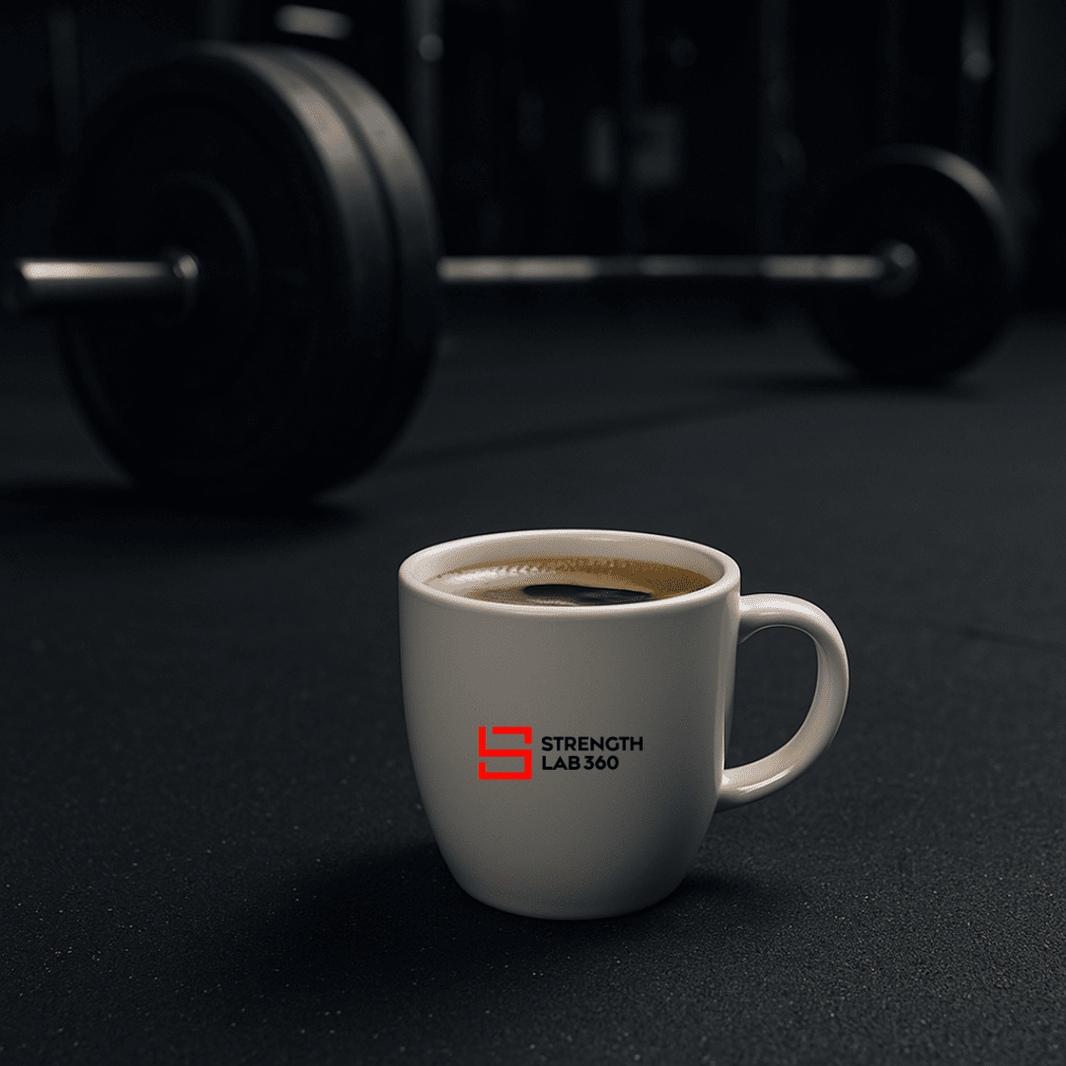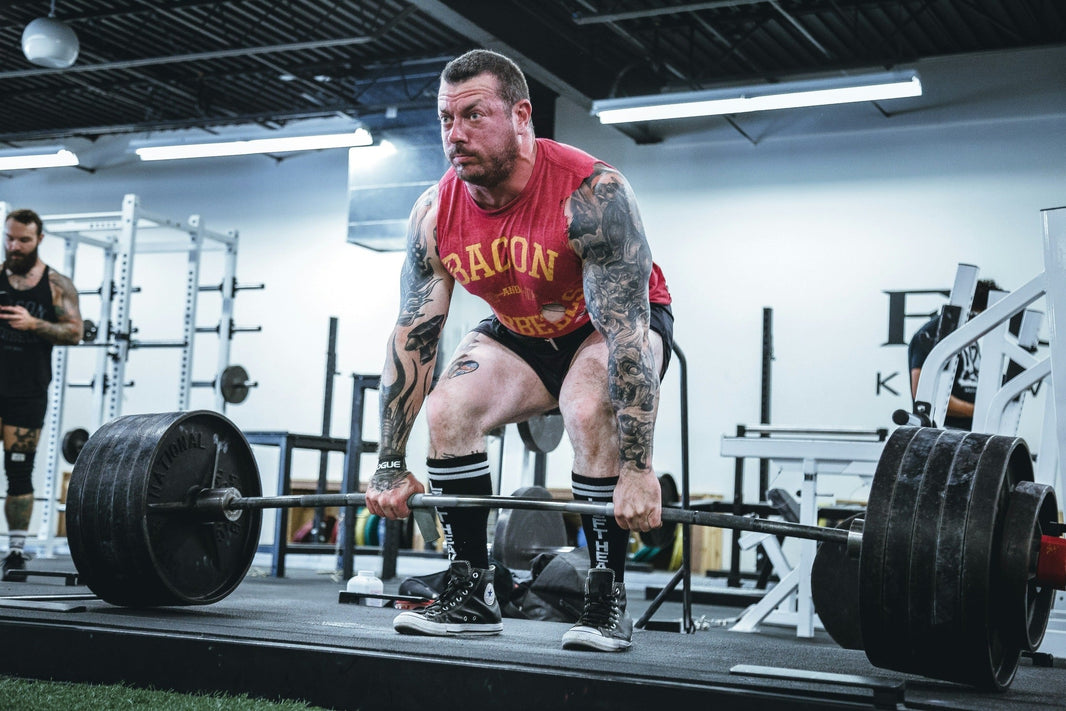Introduction on Muscle Mass and Weightlifting
Lifting heavy weights is often misunderstood as a strength training myth, believed to cause bulkiness. At StrengthLab360, we clarify that heavy lifting enhances strength and muscle definition without excessive size, aligning with your fitness goals.
Understanding the Myth of Heavy Lifting and Getting Bulky
This myth often arises from observing professional bodybuilders, whose size is the result of specialized training and nutrition. For most individuals, heavy lifting is an effective strategy for increasing strength and improving body composition without significant bulk. The misconception that lifting heavy weights will make you bulky is especially prevalent among women, who may fear gaining muscle mass and looking bulky. However, the reality is that gaining a lot of muscle takes time, a specific training approach, and often a calorie surplus.
The Science Behind Lifting Heavy Weights
Lifting heavy weights involves physiological processes that enhance strength and muscle density, not necessarily size. Here’s what the research shows:
-
Hormonal Influence: Testosterone plays a crucial role in muscle hypertrophy. Women, in particular, have lower testosterone levels, making significant muscle mass increase unlikely through heavy lifting alone. Women produce as much testosterone as men, but at a much lower level, reducing the likelihood of becoming bulky.
-
Training Approach: Strength-focused programs typically incorporate lower repetitions with heavier weights, which promotes muscle density and strength rather than hypertrophy. This means lifting heavy weights won’t make you bulky but will instead help you build lean muscle and tone your physique.
Benefits of Heavy Lifting Without Bulk
Heavy lifting offers numerous benefits without the fear of becoming bulky:
-
Muscle Density and Composition: Engaging in weight training can enhance muscle density and improve overall body composition, making you look toned and fit.
-
Strength-Focused Programs: These programs emphasize building strength and muscle endurance without increasing the size of your muscles excessively.
-
Bone Density and Overall Health: Lifting weights contributes to bone density and overall health, reducing the risk of osteoporosis and other bone-related issues.
How StrengthLab360 Can Help to Build Muscle
StrengthLab360 offers a data-driven approach to training, ensuring your program aligns with your specific goals:
-
Tailored Training Programs: Our adaptive algorithms customize your plan to enhance strength without unnecessary bulk, focusing on building lean muscle.
-
Technique Analysis: Utilize our video feedback feature for precise technique improvements, guided by certified coaches. This ensures you’re using weights correctly to achieve your desired results.
-
Comprehensive Progress Tracking: Monitor your strength gains and muscle definition with our advanced tracking tools, helping you stay on track with your fitness journey.
Conclusion
Lifting heavy is a powerful method for building strength and improving physique without the bulk. StrengthLab360 provides the tools and insights you need to achieve your fitness objectives effectively and efficiently. It’s time to get rid of the myth that lifting heavy weights will make you bulky and embrace the benefits of resistance training for reshaping your body and improving your overall health.
Scientific Studies and Reviews
Understanding the Myth
-
Why Heavy Lifting Doesn’t Cause Bulk for Most Individuals:
- Phillips, S. M., et al. (2007). Resistance Training in Women: Adaptations in Muscle Strength, Power, and Hypertrophy. Applied Physiology, Nutrition, and Metabolism, 32(5), 1139–1146. DOI
-
Professional Bodybuilders and Specialized Training:
- Helms, E. R., et al. (2014). Evidence-Based Recommendations for Natural Bodybuilding Contest Preparation. Journal of the International Society of Sports Nutrition, 11(1), 20. DOI
The Science Behind Lifting Heavy
-
Hormonal Influence on Muscle Growth:
- Vingren, J. L., et al. (2010). Testosterone Physiology in Resistance Exercise and Training: The Upstream Regulatory Elements. Sports Medicine, 40(12), 1037–1053. DOI
-
Gender Differences in Testosterone Levels and Muscle Hypertrophy:
- West, D. W., & Phillips, S. M. (2012). Anabolic Processes in Human Skeletal Muscle: Restoring the Identities of Growth Hormone and Testosterone. European Journal of Applied Physiology, 112(8), 2671–2680. DOI
-
Strength vs. Hypertrophy Training:
- Schoenfeld, B. J., et al. (2016). Strength and Hypertrophy Adaptations Between Low- vs. High-Load Resistance Training. Journal of Strength and Conditioning Research, 30(12), 3508–3515. DOI
Benefits of Heavy Lifting Without Bulk
-
Muscle Density and Composition:
- Morton, R. W., et al. (2016). A Systematic Review of Resistance Training in Healthy Older Adults: Effects on Skeletal Muscle Mass and Strength. Sports Medicine, 46(8), 1041–1063. DOI
-
Strength-Focused Programs:
- Rhea, M. R., et al. (2003). A Comparison of Linear and Daily Undulating Periodized Programs with Equated Volume and Intensity for Strength. Journal of Strength and Conditioning Research, 17(1), 82–87. Link
Supporting Tools and Techniques
-
Benefits of Technique Analysis in Lifting:
- Behm, D. G., et al. (2008). Neuromuscular Responses and Adaptations to Resistance Training. Applied Physiology, Nutrition, and Metabolism, 33(3), 555–564. DOI
-
Importance of Progress Tracking in Strength Gains:
- Kraemer, W. J., & Ratamess, N. A. (2004). Fundamentals of Resistance Training: Progression and Exercise Prescription. Medicine & Science in Sports & Exercise, 36(4), 674–688. DOI
General Resources
-
American College of Sports Medicine (ACSM) Guidelines:
- ACSM’s Guidelines for Exercise Testing and Prescription (11th Edition). American College of Sports Medicine. Website
-
National Strength and Conditioning Association (NSCA) Recommendations:
- Essentials of Strength Training and Conditioning (4th Edition). National Strength and Conditioning Association. Website
Frequently Asked Questions About Strength Training and Muscle Growth
No, lifting heavy weights does not inherently make you bulky. Many people believe that heavy lifting will result in a large, muscular physique, but this is a misconception. The amount of muscle mass you gain from strength training depends on several factors, including genetics, diet, and the specific training program you follow. Most individuals can lift heavy weights and still achieve a toned and lean muscle appearance without excessive muscle growth.







